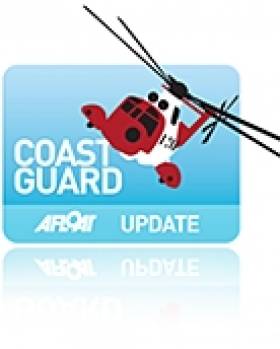Displaying items by tag: Tenby Coastguard Rescue Team
Woman Airlifted From Beach After Fall
The woman who was staying at Manorbier, had fallen near to a cave and was now on rocks to the west of the beach. Her young son (aged 11) was with her at the time along with another youngster, aged 14. The tide was coming in and there was no access out of the area, which allowed her evacuation from the area only by sea. Another member of the public who had witnessed the accident called the Coastguard for assistance.
The Tenby Coastguard Rescue Team were immediately turned out and the RNLI Tenby All weather Lifeboat with their 'Y' boat on board was also asked to launch. A rescue helicopter from RAF Chivenor was also scrambled given the inaccessibility of the area.
The weather on scene late this afternoon was southwesterly winds force 5 to 7 with moderate seas and squally showers.
From reports at the beach it was decided that conditions were too rough to effect either a cliff rescue or sea evacuation and the rescue helicopter landed on the beach and administered first aid to the woman who was in acute pain. It then took all three people off to Withybush hospital.
Nigel Yelland, Watch manager at Milford Haven Coastguard said
"The area in which the woman was exploring can be quite challenging in wet weather, and rocks can become very slippery underfoot. We're advising that as the autumnal weather becomes more hostile please wear the most appropriate clothing and footwear for the coastal areas you intend to walk, and make sure you have some method of communication to the outside world."
























































